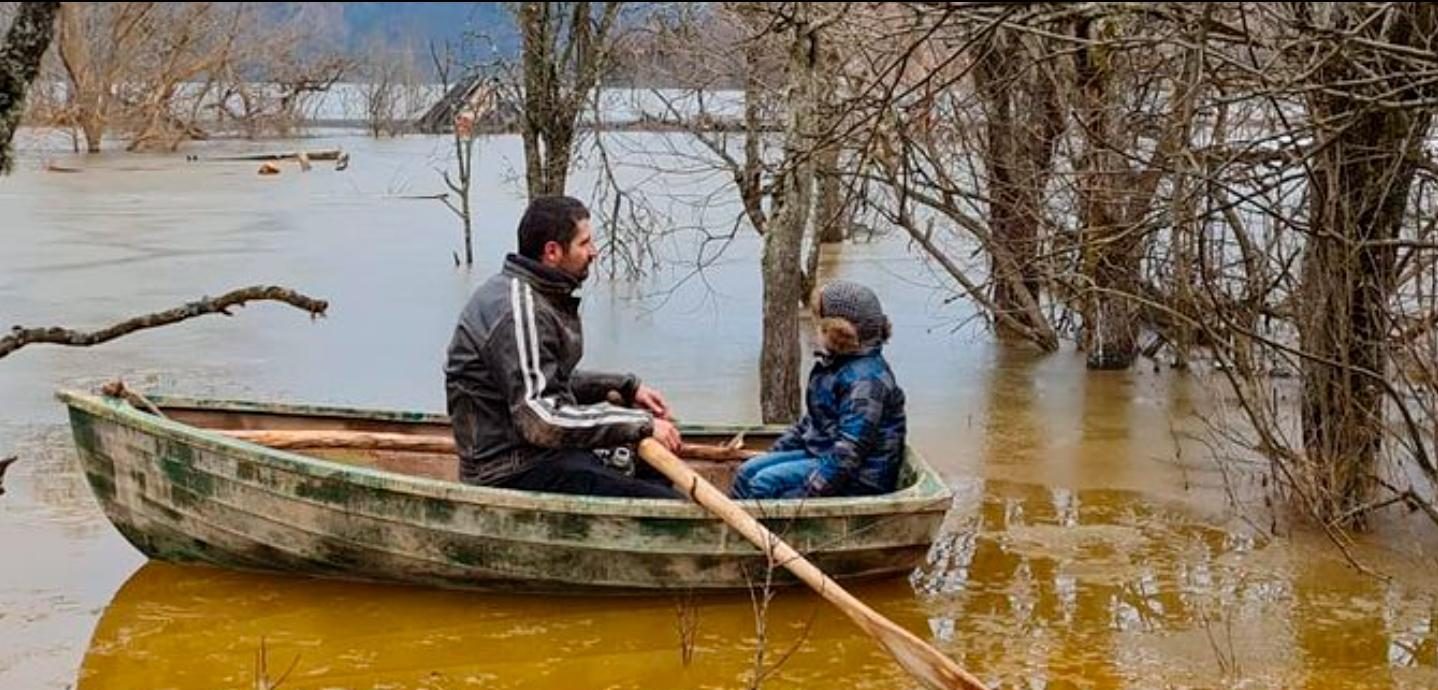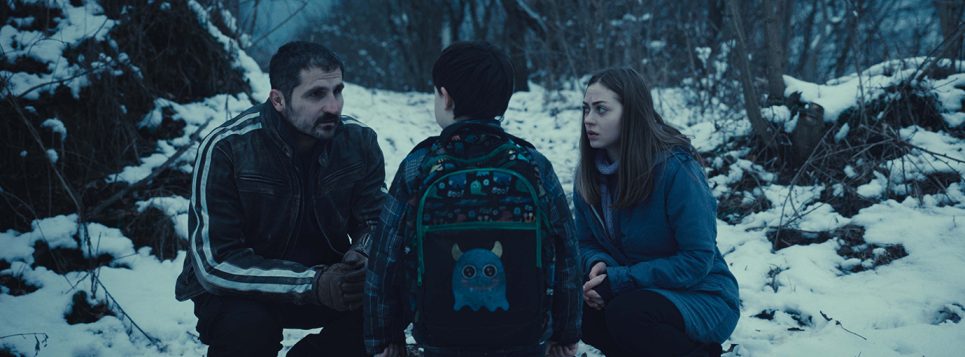‘R.M.N’ revolves around Matthias, who quits his job and returns to his village in Transylvania before Christmas. He intends to be more present for his son Rudi to resolve his fears and help his wife, Ana. He serves his old father and craves to meet his ex-lover, Csilla, who manages a small factory. When it hires new workers, there’s an uproar in the community.
The adults must now decide what values they inculcate in their children and how they deal with the delicate situation at hand. The Cristian Mungiu directorial is a drama movie that raises multiple ethical and moral questions. If this film piqued your curiosity and you are eager to know whether there’s any grain of truth to the story, we’ve got all the details for you.
R.M.N: Based on True Events in Ditrău, Romania
Yes, ‘R.M.N’ is based on the true story that unfolded in the small village of Ditrău in Romania. As reports suggest, 350 villagers protested against two (some sources claim three) Sri Lankan employees who were hired in a local bakery. They feared that immigrants would take all their jobs, and while some say that it is a case of xenophobia, others believe it’s a conflict between the villagers and the factory. Cristian Mungiu adapted this incident into a screenplay in an attempt to understand the ideologies behind these actions.

The movie is seemingly titled ‘R.M.N’ because it is the Romanian acronym for nuclear magnetic resonance. He selected this name as he intended to examine and investigate the things that are not visible to the naked eye but hidden below a surface. After the incident occurred in 2020, he was taken aback because, in his opinion, one minority was overpowering the other and being xenophobic. After following the incident, he believed that other themes could also be included in the movie, such as tribalism and our need to identify with large groups.
It is also reflective of the anxiousness that is spread in contemporary society due to consuming information about depleting resources, global warming, etc. He believes that our primal brain takes over when we are threatened, and we act on our survival instincts instead of the logic and reasoning part. Moreover, he also included elements of human belongingness, new patterns of migration, and fear to control something which is unfamiliar to us.
In the film, the main character’s development is realistic, and he doesn’t evolve after one incident but over a period of time. He also utilized the backdrop of the movie to depict the psyche of the protagonist, who oscillates between the dark forests that represent our deep and rousing fear, and the village, which is symbolic of our softer and loving side. Cristian addressed the dilemma of moral choice, which is a recurring concept in his movies. He said, “I don’t believe there’s such a thing as a clear moral choice.”
The director added, “As human beings, we have the freedom to make decisions, taking responsibility for the results of our decisions. And no decision ever takes us solely along the path we chose: that’s what’s difficult about negotiating life.” He continued, “What are you going to teach your children, given the way the future’s looking? To be winners? Survivors? Fighters? To be the first to flee when the fire starts? Or to be polite? Parents are undoubtedly always afraid for their children, but anxiety is on the rise with the successive crises we’re experiencing.”
In another interview, Cristian spoke about how he characterized the villagers and their behavior. Cristian stated that ‘R.M.N’ was not about Romania alone but humanity in general. He thoroughly followed all the news articles that came out and read about the villagers’ opinions to formulate fitting dialogues for them. The filmmaker also revealed that he tends to be less sympathetic toward the characters. He also commented about his intentions with the film and said, “My aim was to address abstract matters, and so it was a complicated process because, in film, you have to do so via something concrete.”
Cristian added, “We always hope that it will make viewers think, although audiences are currently a bit lazy because they’re not often exposed to film genres that require them to gather the different elements together and think about different viewpoints. I don’t want to give conclusions on what viewers see, and I don’t want to pass judgment; I want to present an incredibly complicated situation, explain how and why it came about, and what the consequences are. It’s up to viewers to pass moral judgment and to understand why the film’s protagonists reacted in the way they did.”
In conclusion, some aspects of the film are fictionalized for cinema, but it dives into extremely realistic yet intangible topics that are necessary for us to address as a society. The problems are brought to light by using a real-life incident and presented in a philosophical manner. One can tell the complex thought that went behind ‘R.M.N’ just by listening to Cristian’s motives.
Read More: Best Drama Movies on Netflix


You must be logged in to post a comment.